Your Data is Your Platform
For successful digital transformation, follow the data.
Since the early days of the global pandemic, one key element has consistently been critical for tracking and battling Covid-19: data.
The US Food and Drug Administration used it to streamline its operations so it could get lifesaving treatments to people faster. Data empowered more than 50,000 health care professionals to improve patient outcomes at New York City Health + Hospitals, the nation’s largest US public health care system. Data also was key in the development of vaccines, from research to delivery.
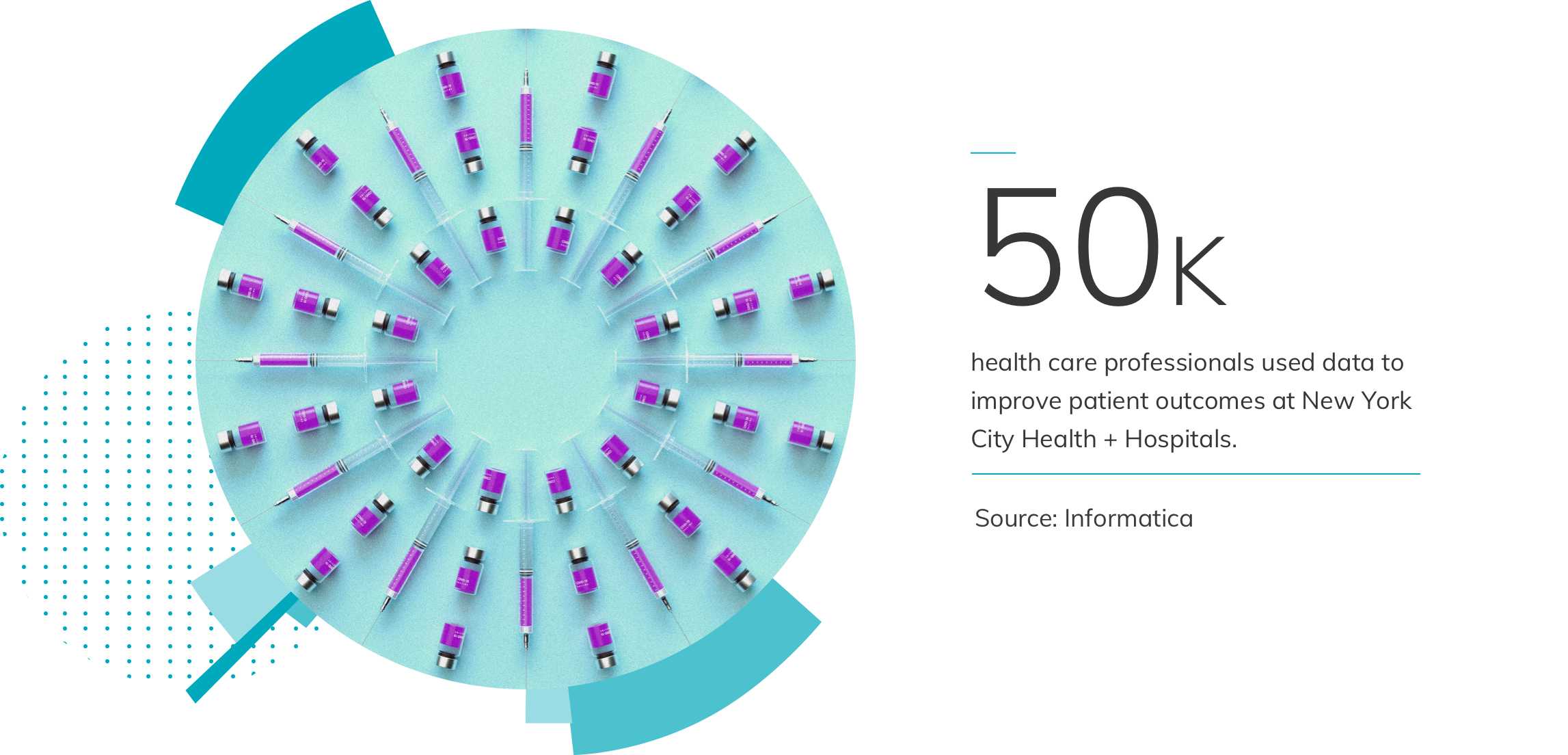
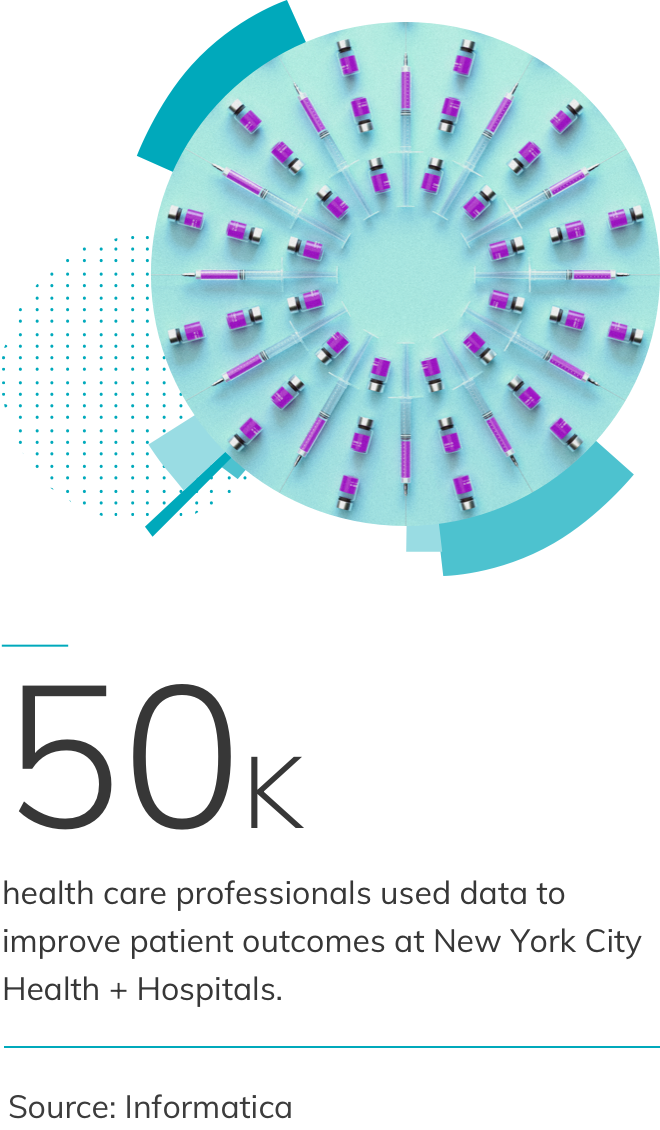
“We needed to support our medical workforce with actionable data to better respond to the pandemic,” says Alexander Izaguirre, Ph.D., Chief Data Officer at NYC Health + Hospitals. “Data is critical for achieving situational awareness in any health system.”
When the pandemic hit, the world went digital almost overnight. Online grocery deliveries went from novelty to necessity, telemedicine experienced rapid maturation from its infancy and government agencies rolled out large-scale digital experiments. This collective move toward digitalization highlights the important role data plays in successful digital transformation, as AI-powered analytics are giving organizations the flexibility to be nimble, innovate with lightning speed and quickly pivot operations to meet evolving customer and market needs.
“We have data in literally everything we do. Data is foundational—it’s the soul of any successful digital transformation,” says Amit Walia, CEO of Informatica, an enterprise cloud data management provider whose solutions helped the FDA, NYC Health + Hospitals and Covid-19 vaccine developers effectively use data during the pandemic. “To succeed in the digital economy, you need to become a modern intelligent data enterprise—an organization focused on data-driven business outcomes to drive customer centricity, leveraging AI-powered analytics and hyper-automation to innovate faster, and built on operational excellence through data democratization and governance to ensure broad and consistent access and use of data for all users.”
Make your data your platform to drive transformation
Digital transformation is the process of using digital technologies like cloud and AI to create new processes, organizational culture and customer experiences. Successful digital transformation provides businesses with real-time information and greater visibility into operations. This offers myriad advantages, including higher efficiency and productivity, lower costs, improved customer satisfaction, greater agility and faster decision-making.
In recent years, most organizations in both the public and private sectors had considered digital transformation, and the pandemic hastened those efforts, with companies of all stripes and sizes accelerating adoption. But many soon realized they weren’t getting the most out of their efforts—because successful digital transformation requires companies to not just use digital technology but become more data-centered organizations. Companies need to make their data their platform, says Walia.
“The common unifying layer to realize end-to-end digital transformation is your data,” Walia says. “At Informatica, we believe that to make the sum greater than its parts – your data is your platform.”
To be sure, companies collect, manage and use large amounts of data from many different sources, and that data has traditionally only been accessible to a select group in the organization, such as the IT department or data analysts, or held in certain siloed departments, such as sales and finance. In order to be successful, companies need to employ a strategy that liberates and democratizes data to make it easily accessible throughout the organization and provide workers at all levels with the information they need to drive the business.
Walia says that many companies’ digitalization efforts come up short because of a failure to do this, and that nearly a third of large organizations have more than 1,000 data sources, which results in data fragmentation.
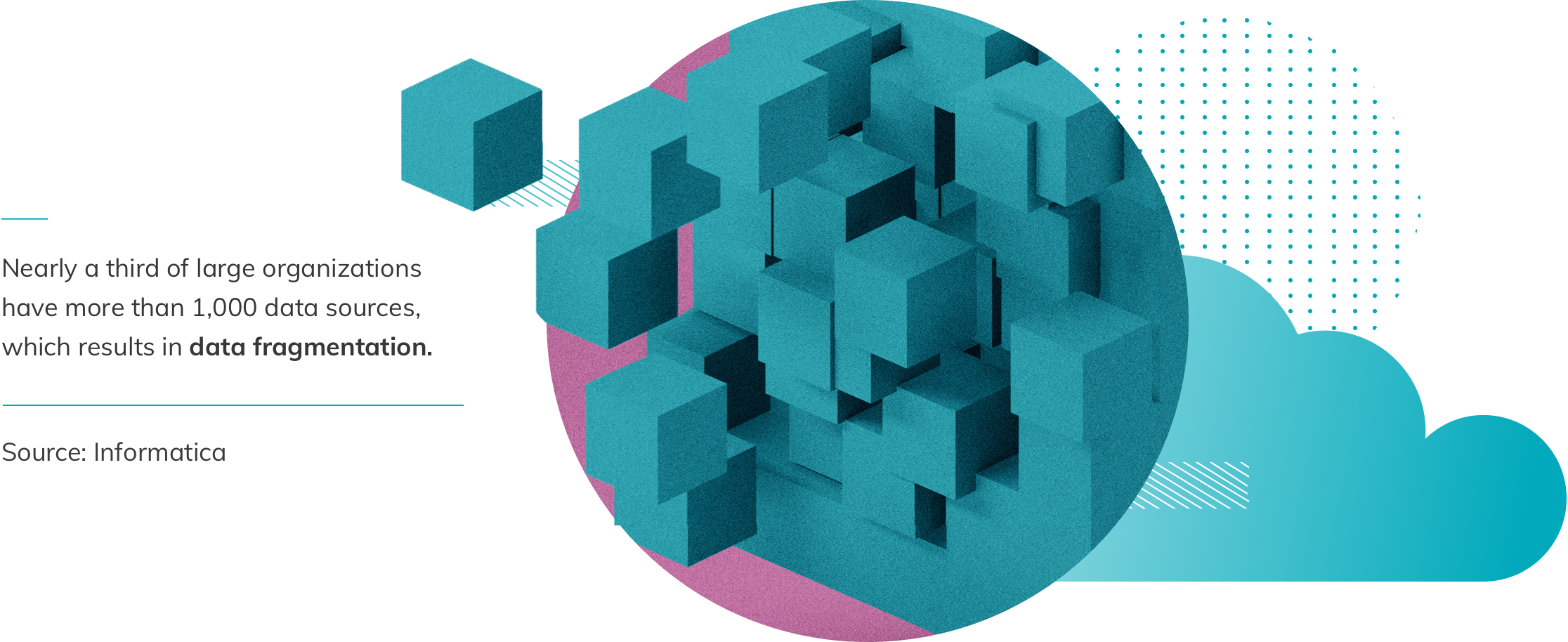
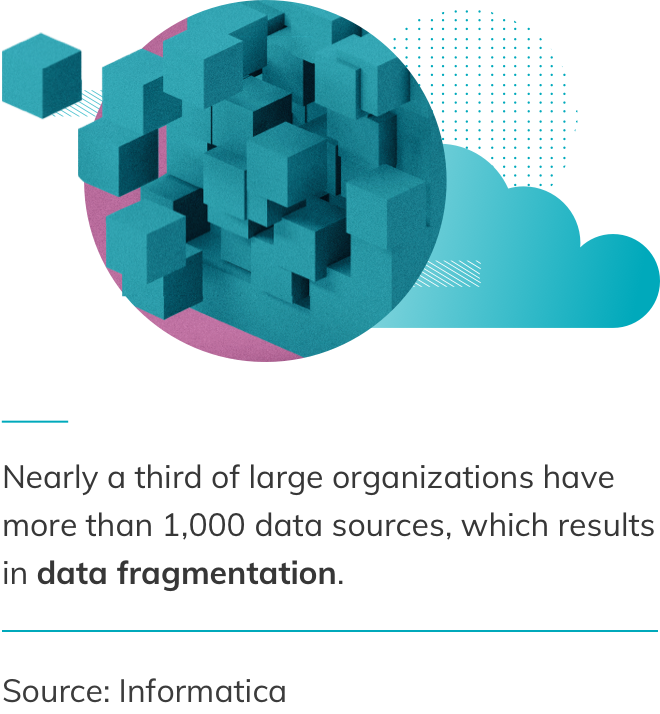
“You may have modernized parts of your business but lack the benefits of end-to-end transformation. You may have moved to the cloud, but are still disconnected,” he says. “What’s holding companies back is that there are so many platforms—sales, marketing, customer, support—scattered across departments. The common unifying layer to realize end-to-end digital transformation is data. That means treating your data as a platform. You can leverage data as a platform when all data is easily discoverable and universally accessible; when all data can be trusted to innovate on and operate with by everyone; and when all data is governed, protected and shareable.”
Recognize value faster than your competitors
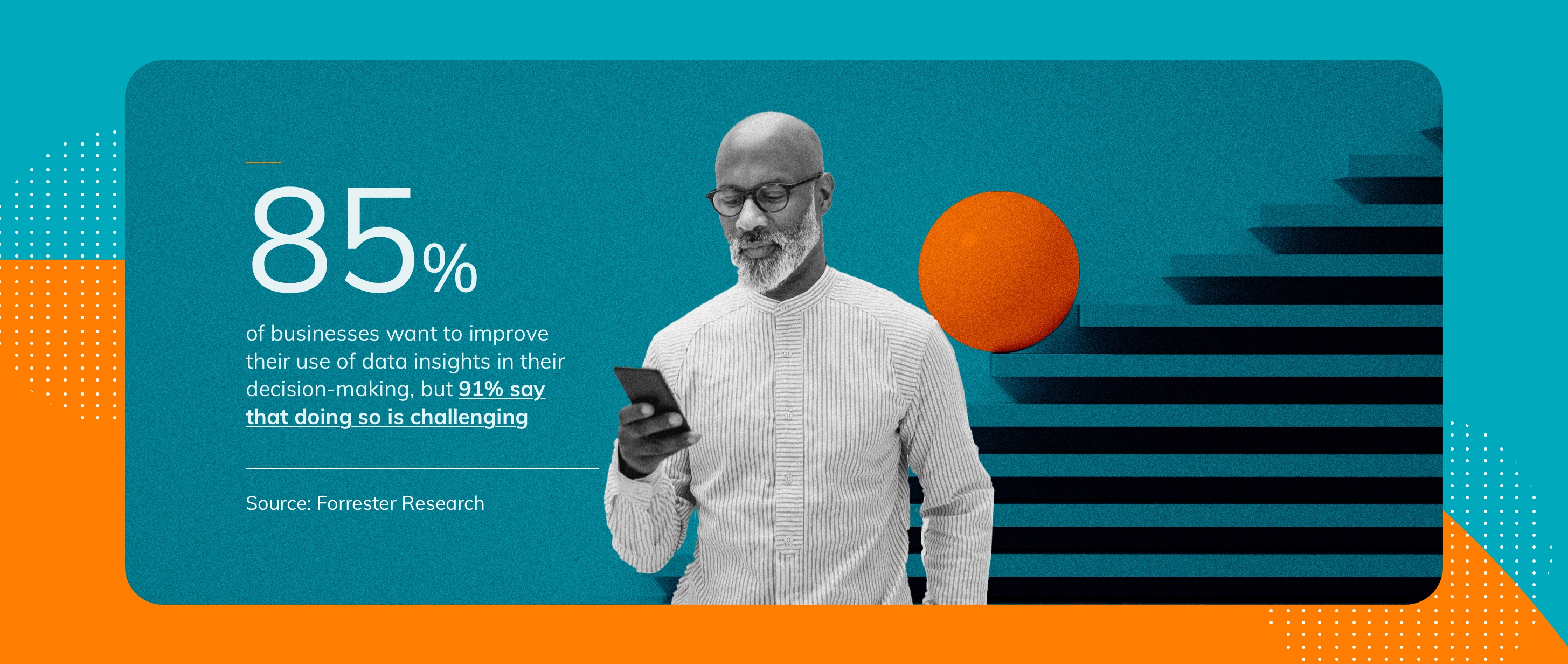
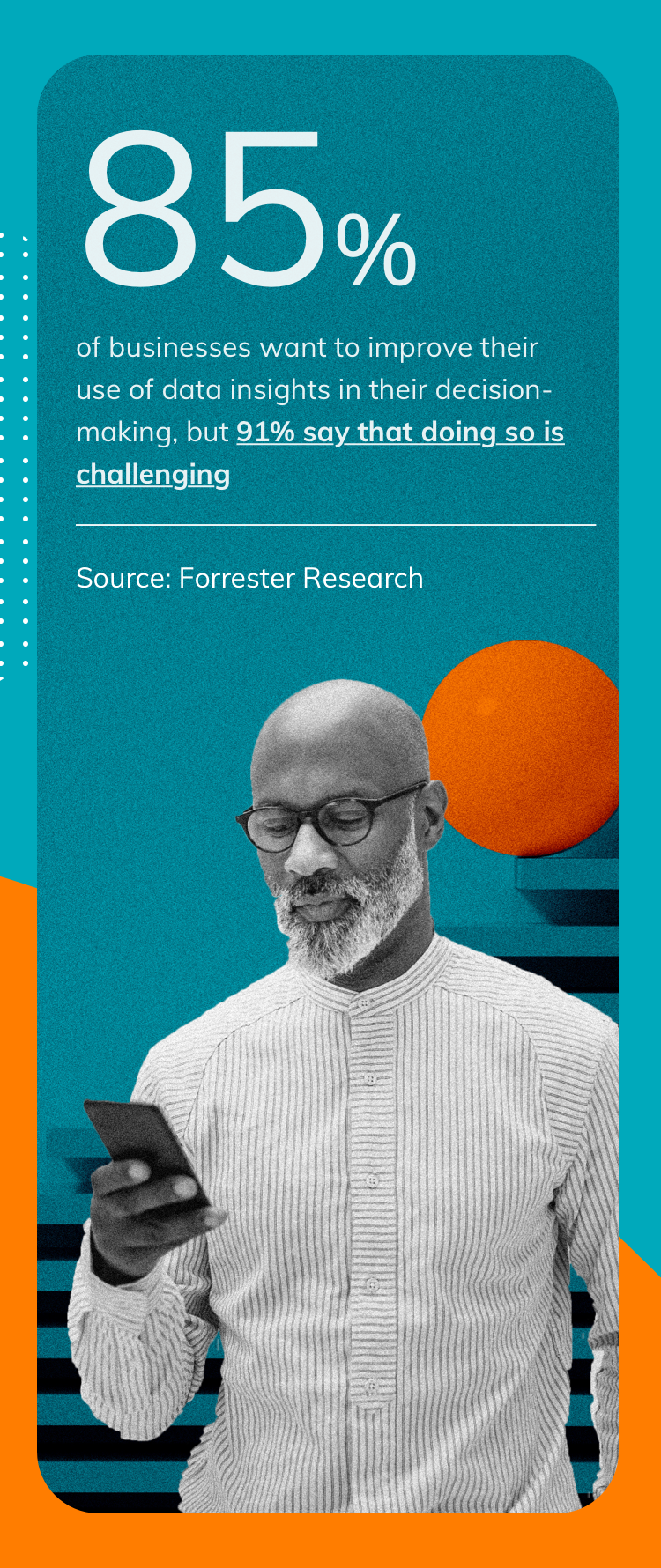
It’s not that companies don’t realize the importance of data. According to a report by Forrester Research, 85% of businesses want to improve their use of data insights in their decision-making, but 91% say that doing so is challenging. The result? Firms make fewer than half of their decisions based on quantitative information as opposed to gut feeling, experience or opinion, according to the report.
For many companies, it’s a matter of not having the right technologies. It’s a big reason why last year, Informatica rolled out their comprehensive AI-powered data platform, the Intelligent Data Management Cloud (IDMC). The company then evolved the IDMC platform by rolling out industry-specific data management clouds for health care and life sciences, financial services and retail, all built on Informatica’s Intelligent Data Management Cloud.
A variety of companies use Informatica solutions to become data-intelligent enterprises. Insurer Anthem enabled democratization of data on 200 million members and 50 billion claims to provide personalized, proactive and predictive health care, reducing costs and improving quality of care delivered through digital, virtual and physical channels. When demand for meal kits spiked during the pandemic, meal-kit company HelloFresh democratized employee access to analytics and demand forecasts—a culture shift that ensured smooth procurement processes for just-in-time deliveries, even as revenue doubled year-over-year.
Likewise, management consulting firm Kelly Services can now identify duplicate records with 99.9% accuracy, gaining a more complete view of job candidates and opportunities to mine and integrate data from customer and partner systems. “Data is our new currency. Whether it’s a video interview, a resume or an email from an employee, there’s value in these data sources,” says Filious Louis, Senior Manager, BI and Analytics at Kelly Services. “In the past, mining that data would have been very complex, but with Informatica, we can capture it immediately. That’s a powerful capability.”
Scott Holcomb, Principal at international professional services firm Deloitte, agrees. “Migrating to the cloud is nothing new but doing it in a manner where companies can move from data to insights in minutes is where Informatica’s IDMC platform comes to play,” he says. “We’ve been working with Informatica on increasing automation to drive more business to the cloud. It sounds easy, but it’s extremely difficult. Automating complex architectures is very complex. We see a lot of upstarts come in saying they can do it. But when we do bake-offs, we see nobody does it better than Informatica.”
“Migrating to the cloud is nothing new but doing it in a manner where companies can move from data to insights in minutes is where Informatica’s IDMC platform comes to play”
— Scott Holcomb, Principal at Deloitte
Walia says that as the world continues to move to a data-driven economy, an increasing number of companies will realize the competitive advantage of making their data their platform. “Over the next five years, we will see companies evolving their digital transformation to become intelligent data enterprises,” he says. “This is because enterprises that have data at their core deliver exceptional customer experiences, innovate faster, offer the right product or service to the right customer at the right time, identify fraud before issues occur and comply with regulations with ease. In short, they recognize value faster than their competitors.”
